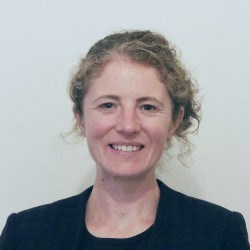Led by Dr Leyanda Purchase, colleagues across each of our Schools and Departments are engaged in applied research which seeks to enhance the learning and teaching environment, to develop deep levels of student engagement and to promote educational gains and high success in student achievements. Here are some of our highlights of what are staff are working on.

Dr Patrick Baughan joined the University of Law in September 2022. He has held previous roles at Advance HE, UCL, City, University of London and the University of Leicester. Patrick is an experienced higher education researcher: his PhD, supervised at Lancaster University, examined student and staff sociologists’ conceptions of sustainability, using the phenomenographic approach. He has authored many journal articles, book chapters and other outputs in areas including assessment and feedback, academic integrity, and Education for Sustainable Development. In addition, he has published on qualitative methodologies including phenomenography and narrative enquiry.
He was a lead author for the Quality Assurance Agency / Advance HE Education for Sustainable Development Guidance document (2021) and edited two widely-adopted publications On Your Marks: Learner-focused Feedback Practices and Feedback Literacy (2020), and Assessment and Feedback in a Post-Pandemic Era: A Time for Reflection and Learning (2021) (both Advance HE). He has given keynote papers in the UK and internationally, predominantly on issues related to assessment and sustainability. He co-founded the Learning, Teaching and Assessment Network for the Society for Research in Education (SRHE), previously convening the Society’s Newer Researcher Network. He is co-convener of the Researching Higher Education Network for the European Educational Research Association.

Dr Balisane joined the University of Law in August 2023. With a distinguished career spanning over 15 years, He completed his Doctoral Thesis at Manchester Metropolitan University where his research focused on information and Cyber Security.
Dr Balisane has held pivotal roles such as Head of Departments, Assistant Dean, Dean of Faculty, and Vice Rector at different universities in the Middle East. His extensive experience in the Higher Education sector is marked by an international profile and a commitment to delivering high-quality academic teaching, research, and leadership both nationally and internationally.
Dr Balisane’s research interests encompass a broad range of subjects within the technological domain, including Information and Cyber Security, biometrics, advanced information technology, multimedia technology, data telecommunications and networks His dedication to these areas demonstrates his involvement with the forefront of technological advancements that are shaping our modern society.
Currently, Dr Balisane conducts research and oversees modules such as ‘Cyber Security for Business’ and ‘Cyber Security Management and Compliance’ at the University of Law Business School. His role as a research lead underscores his proficiency in navigating the intricacies of cyber security within the framework of business operations and compliance.

James holds a BA in Sociology from the University of Leeds, a MA Social Research from Goldsmith College, and an ESRC funded PhD from the University of Leeds. His research interests include: policy making; narrative theory and narrative methods (particular narrative free association interviewing); equality governance; and post-structural social theory. He has published around the area of narrative and policy making. In addition to researching James has notable experience teaching across the areas of sociology, social policy, and criminology. He has also sat on the editorial board for the Graduate Journal of Social Science (gjss.org) and was a convenor for the British Sociological Association Postgraduate Forum (PGF).

Thomas has a degree in Business and Law, and an LLM in Commercial Law from University College Dublin. He has a Masters of Business Administration from Trinity College Dublin. He is an Irish qualified Certified Public Accountant, having qualified in 2010 at Legal & General Investment Management. He is also an Irish qualified Legal Executive Lawyer, having qualified in 2015 at Columbia Threadneedle Investments. He is currently completing a PhD in Law at University College Cork, with a research focus on systemic risk regulation within the asset management industry. He is also a Fellow of the Higher Education Academy. Thomas has over 20 years of financial services experience, having held several senior regulatory positions within the asset management industry in Dublin and London. Thomas joined the University of Law in 2021 and teaches on the AMIL programme. Alongside his teaching role, Thomas continues to practice as a regulatory consultant, in an advisory capacity, at Ernst & Young.

Sarah is a barrister and former solicitor specialising in criminal defence. She has a degree in Social and Political Sciences from King’s College, University of Cambridge. She also has Masters degrees in education and law, both with Distinction, and a PhD in law. Sarah’s PhD (titled: ‘Hypercriminality: How Criminal Law and Evidence Construct Hyperreal Racialised Legal Subjects’) combined Critical Race Theory, Judith Butler’s theories of performativity, racial framing and ungrievable lives, and Jean Baudrillard’s theories of simulation, simulacra and hyperreality. Her research interests include criminal law and evidence, social theory, post/anti-colonialism, criminology, zemiology, carceral abolition and transformative justice. Sarah is convenor of the ULaw Law, Race and Colonialism research group and is a Senior Fellow of Advance HE. Sarah’s book (working title: Race, Law and Hypercriminality) is forthcoming (Routledge 2025).

Dr Morag Duffin is Head of Access and Student Success at The University of Law. Morag is responsible for the University’s work in supporting students from underrepresented backgrounds to access, succeed in and progress from Higher Education into employment. Morag is a qualified teacher and has over 10 years’ experience in Access and Participation work at a variety of educational institutions, spanning higher, secondary and primary education. The University’s work with underrepresented groups is evidence-informed and robustly evaluated. Morag has undertaken research projects into the experiences of different underrepresented student groups at the University such as commuter students and students from minoritized ethnic backgrounds to inform the access and participation activity delivered at the University. She has also participated in collaborative research with other higher education providers on developing inclusive curricula.

Andrew is a writer and educator. His interests include the craft and process of academic writing. His first book, ‘Beat Your Writer's Block’ (Sage, 2020), helps students to identify and understand the causes of writing anxiety and offers strategies to overcome writing-related problems. He contributed to two of the modules on the ‘Sage Skills: Student Success’ digital resource: for the ‘Study Strategies and Assignments’ module, he wrote ‘Maintaining Motivation, Concentration, and Focus’; for the ‘Academic Writing’ module he wrote ‘Achieving Good Style in Academic and Professional Writing’. Andrew is currently working on his second book for Sage, aimed at students who are struggling with academic writing at university.
Andrew has published on comics and graphic novels for academic and mainstream publications. He is currently working on a book about Grant Morrison for the University Press of Mississippi. His PhD thesis focused on intertextuality and gender in the work of Alan Moore (University of Wales, 2018). He holds an MA in English Literary Culture 1880-1920 (University of Wales, 2000), a PGCE in Secondary English (Bangor University, 2001), and a PgDip in Information and Library Management (LJMU, 2004). He is a visiting lecturer, and formerly a teacher and librarian.

Richard is interested in the mechanisms of Psychological Contract breach in organisations, especially those containing a blend of cultures. He completed his Doctoral Thesis at the University of Liverpool where his research focused on the Psychological Contract within an International Joint Venture organisation in China. Richard is a qualitative researcher first and foremost who prefers an ethnographic methodology. He is keen to apply a Critical Realist framework to the study of organisations. Richard has published in both the Journal of Educators Online and Business Impact Magazine. His most recently published article is titled ‘Trust the process: Why managers must have greater awareness of how the concept of trust differs across cultures’. Richard currently teaches both Leadership and Human Resource Management at the University of Law Business School in Birmingham.

Vicky completed her LLB at University College London, graduating with First Class Honours. She then studied a MA in Medical Ethics and Law at King’s College London, and the Legal Practice Course at the University of Law’s Bloomsbury campus (then the College of Law) obtaining a Distinction. Vicky qualified as a solicitor in 2013 and worked primarily in Healthcare Regulation, including time spent in-house with a regulator. Vicky is a Senior Fellow of Advance HE and a Fellow of the Royal Society of Arts, having been nominated for the latter as a Centenary Young Fellow. Vicky moved into legal education in 2015 and joined the University of Law in November 2021 as a Programme and Student Lead for the Online AMIL programmes. Vicky currently teaches Healthcare Regulation (having co-designed the module), Medical Law and Ethics, and Mental Health Law, as well as supervising dissertations within these specialisms. Vicky is starting a PhD at University College London in September 2023, having been awarded the Faculty of Laws Research Opportunity Scholarship. Her research will focus on the place of dishonesty within healthcare professional regulatory practice.

Simon is a Senior Lecturer at the University of Law Online Campus, with expertise in terrorism and counterterrorism law and measures. His work also focuses on law enforcement powers with an emphasis on the state’s online surveillance of electronic communications. Internet law and data privacy are of particular interest, along with serious organised crime and the international response to it. Simons work essentially focus on the impact of legal and policy measures on civil liberties and human rights.
In addition to publishing his work, he is an external peer reviewer for the Economic and Social Research Council (ESRC) and UKRI, Taylor & Francis International Journal 'The Law Teacher', and the 'Asian Journal of International Peace and Security', and the Liverpool Law Review. Additionally, he provides specialist expert reviews for books on Terrorism, Extremism, Policing & Surveillance, to be published by Routledge.
Simon’s monograph titled, 'Digital Privacy, Terrorism and Law Enforcement: The UK’s Response to Terrorist Communication’ was published by Routledge in July 2018. This large body of work represented the first of its kind in critiquing the then new UK’s Investigatory Powers Act 2016. The foreword and subsequent recommendation for this publication came from Lord Carlile of Berriew CBE KC.

John’s research interests are in Criminology and Policing, and cover art crimes, policing, transnational crime/policing, protest, and insurance/risk. He is a leading figure in the research area of art crimes. His monograph on the Securitization and Policing of Art Theft in London was published in 2015. He has also published articles and chapters in leading peer reviewed Criminology and Policing journals and books, spoken at many national and international conferences, and appeared in the print and television media. In addition, he is a reviewer of book proposals, journal articles, grants, a member of Editorial Advisory panels, and an external examiner of PhDs.

Rowena studied English and Latin at the University of Nottingham, before converting to Law and qualifying as a solicitor in 2012. After five years in practice, Rowena completed an MSc in Educational Psychology at the University of York, where she is working towards her PhD, alongside teaching Criminology at the University of Law.
Her thesis explores the interaction between mental health and identity, with a particular focus on loneliness, using qualitative methods. Rowena has presented her research at a variety of conferences and her research for publication includes an exploration of facets of aloneness during the COVID-19 pandemic, memories of loneliness in childhood and identity, and experiences of loneliness in education.
At the University of Law, Rowena's research interests focus on Psychological Criminology, in particular the interaction between early negative experiences, identity, and criminal behaviours.

Dr. Hin Li joined the University of Law Business School in May 2023. Before coming to the UK, Dr. Li spent about 28 years at the University of Hong Kong specializing in a wide range of research interests ranging from the economics of land use policy, urban land development and regeneration, to the socio-economic impacts of the built environment.
Dr. Li was awarded the Fulbright (Hong Kong) Scholar in 2006 to carry out research exchange in Transfer of Development Rights at the University of Maryland, US. In the last thirty years, Dr. Li has written and published over 55 internationally-refereed journal papers in these areas, in addition to a number of academic books published by respectful publishers.
These published papers cover a wide range of social and business research interests including the impact of housing condition on learning behaviour of children, negative social effect of over-tourism, the political economy of land supply policy and the analysis of library design and learning satisfaction among university students. In the most recent Research Assessment Exercise conducted in Hong Kong, Dr. Li had one paper with a 4-star score and two papers with a 3-star score

Dan is an autistic autism researcher, who has a particular interest in the application of Interpretative Phenomenological Analysis and small-scale narrative approaches to research. Dan is currently in the final stages of completing a PhD at Bishop Grosseteste University investigating the experiences of autistic graduates transitioning into employment within the creative industries. Alongside this he is also examining how autism is portrayed and represented in the research process and wider society. Dan has previously presented at the British Sociological Association National Conference, East Midlands Doctoral Conference and the Participatory Autism Research Collective conference, on topics around autism, neoliberalism and the future of autism research.
Dan has an Masters in Education from the University of Birmingham in relation to disability and inclusion with a particular focus on person centred approaches to supporting students with profound and multiple learning differences, with more recent professional experience of accessibility at large scale music concerts, premier league football matches and higher education.

Dessy has a BSc (Hons) in Business Administration from Huron University and MSc in Data Analytics and Marketing from Arden University. She is currently undertaking a PhD study with the University of Worcester Business School researching the topic of applications of Artificial Intelligence, and specifically chatbots in the field of Higher Education Institutions’ efforts in student recruitment.

Dr Richard Ondimu is an active researcher. His PhD focused on the impact of bank-insurance mergers and acquisitions on shareholders' value (view his thesis). In addition one of his PhD chapters titled "Corporate Governance and deal completion outcomes: evidence from bank insurance acquisitions" is also in advanced stages of being published (WIP).

Julie has a strong research background with a focus on how digital innovations can support mental health. She has published widely in peer reviewed journals, books and book chapters with two recently published books - Passmore, G., & Prescott, J. (2022). A New App for Identity Structure Analysis and Professional Development, Palgrave; Prescott, J. (2022). Digital innovations in mental health, IGI Global. Julie is currently co-authoring a book Digital Technologies and Positive Psychology, Emerald. Julie is the co-editor of Mental Health and Social Inclusion and is about to launch a new journal for Emerald in 2024: Mental health and Digital Technologies. She is on the EAB for the British Journal of Guidance and Counselling and a reviewer for several journals.

Emily’s multi-disciplinary research works at the intersections of queer theory, contemporary literature, media and culture and the law. Drawing on over a decade of professional experience in law and research expertise in queer Americana, LGBT poetry, fiction, memoir, television and music, Emily’s research identifies interdisciplinary sites of enquiry, taking arts and culture as a point of intersection with legislation, judicial and political interventions that have impacted LGBT communities in Britain and America. Ongoing research includes work on the policing of music subcultures and connections between LGBT activism, legislative progress and visibility in British soaps. Emily is also in the early stages of developing a long-term research project that considers poetry as a site of resistance to legislative and political measures that have impacted LGBT lives. Emily has published in peer reviewed journals and edited collections and has delivered numerous conference papers. Emily has acted as a peer reviewer for various journals and is a member of the Society of Legal Scholars, the American Studies Association and the Socio-Legal Studies Association. Emily’s most recent publication is forthcoming with Routledge in 2023.

Jo’s research focuses predominantly on medical Law and ethics, broadly defined, and, in particular, the interface of law and clinical practice. Jo enjoys grappling with ethical and legal dilemmas that engage in the delivery of contemporary health services. Her previous connections with the NHS, and wider health services, have allowed her to identify live issues and interrogate how these should be approached. Jo’s most recent publications include ‘Clinical Guidelines and the Law of Medical Negligence – Multidisciplinary and International Perspectives’ (Edward Elgar, 2021); ‘Responsible practice or restricted practice? An empirical study of the use of clinical guidelines in medical negligence litigation (Medical Law Review, 2021) and ‘Death caused by negligent medical care: Reconsidering the role of gross negligence manslaughter in the aftermath of Bawa-Garba’ (Medical Law International, 2021). Jo has been a principal investigator and collaborator on a range of national and international grant funded projects. Jo joined the University of Law in 2021 having previously been Professor of Medical Law at De Montfort University.

Dr Paul Sant received his BSc (Hons) in Computer Information Systems from the University of Liverpool in 1999, and his PhD from King’s College, London in 2003. He is an active researcher and has over 10 PhD completions in the area of Cyber Security, Artificial Intelligence and smart systems development. He has over 50 research publications in peer-reviewed journals and conferences and is a reviewer for a number of IEEE and other notable computer science journals and has been a reviewer on a number of Engineering Physical Science Research Council (EPSRC), part of UK Research and Innovation (UKRI). He has secured over £400,000 of research grants, and has successfully supervised Knowledge Transfer Partnerships (KTPs) working in collaboration with industry.
Paul researches and works at the interface of computer science and other disciplines, especially in the applications of artificial intelligence to provide efficient and sustainable solutions.
Paul joined The University of Law as the Head of Computer Science in October 2022, having spent the previous 17 years at The University of Bedfordshire.

Chris is a published researcher who has been with the University of Law since 2010 where he is a Senior Lecturer. He holds a PhD in Information and Knowledge Management, specifically investigating everyday life information-seeking behaviours (ELIS), using constructivist grounded theory method. Focusing on information-seeking behaviours and legal technology within the professions and education, Chris’ research interests include: AI and law-tech discourse, technological innovation in legal services, AI and education, technologies, innovation, and future learning, Epistemology in a post-truth world and its effect on information-seeking behaviours, The history and development of AI and Academic Integrity and the use of technology.

Karen worked in practice as a solicitor in the City of London prior to moving into legal education. Her PhD thesis focuses on the potential impact Eurocentric approach to teaching law, and any potential impact on the change of approach in terms of decolonising the curriculum. The context is set against the recent changes to the qualification regime.
Karen achieved a Distinction in her Masters. Her dissertation investigated the potential access to justice implications should the proposals suggested in the Briggs’ report be fully implemented. She has worked on papers on the different learning outcomes for students taking and asynchronous learning, a streamed model and traditional classroom-based learning. She has also investigated whether asynchronous learning tools, such as discussion boards, could be better utilised to establish an engaged learning community.
As well as her legal qualifications, Karen holds a PgCHE in legal education and is an IMI certified mediator. She is currently working towards her Higher Rights Accreditation. Karen is the Programme and Student lead for the LPC and SQE at the Moorgate Camus. Having held the same position at the Online Campus. She became a teaching fellow in 2012 and an associate professor in 2020.

Jennifer is a qualified solicitor with a specialism in employment law. She has been with the University since 2018 working in the pro bono team and in research development (Academic Enhancement). She is now a Senior Lecturer (Apprenticeships – Skills Coach). In 2022, Jennifer completed a research masters at the University of Warwick on the topic of sexual harassment laws. She is now undertaking a PhD using a feminist methodology with a focus on justice needs in the Employment Tribunal. Jennifer recently presented at the Clinical Legal Education Conference (opportunities in clinical legal education following the pandemic) and is a member of the Birmingham Law Society employment law Committee.
